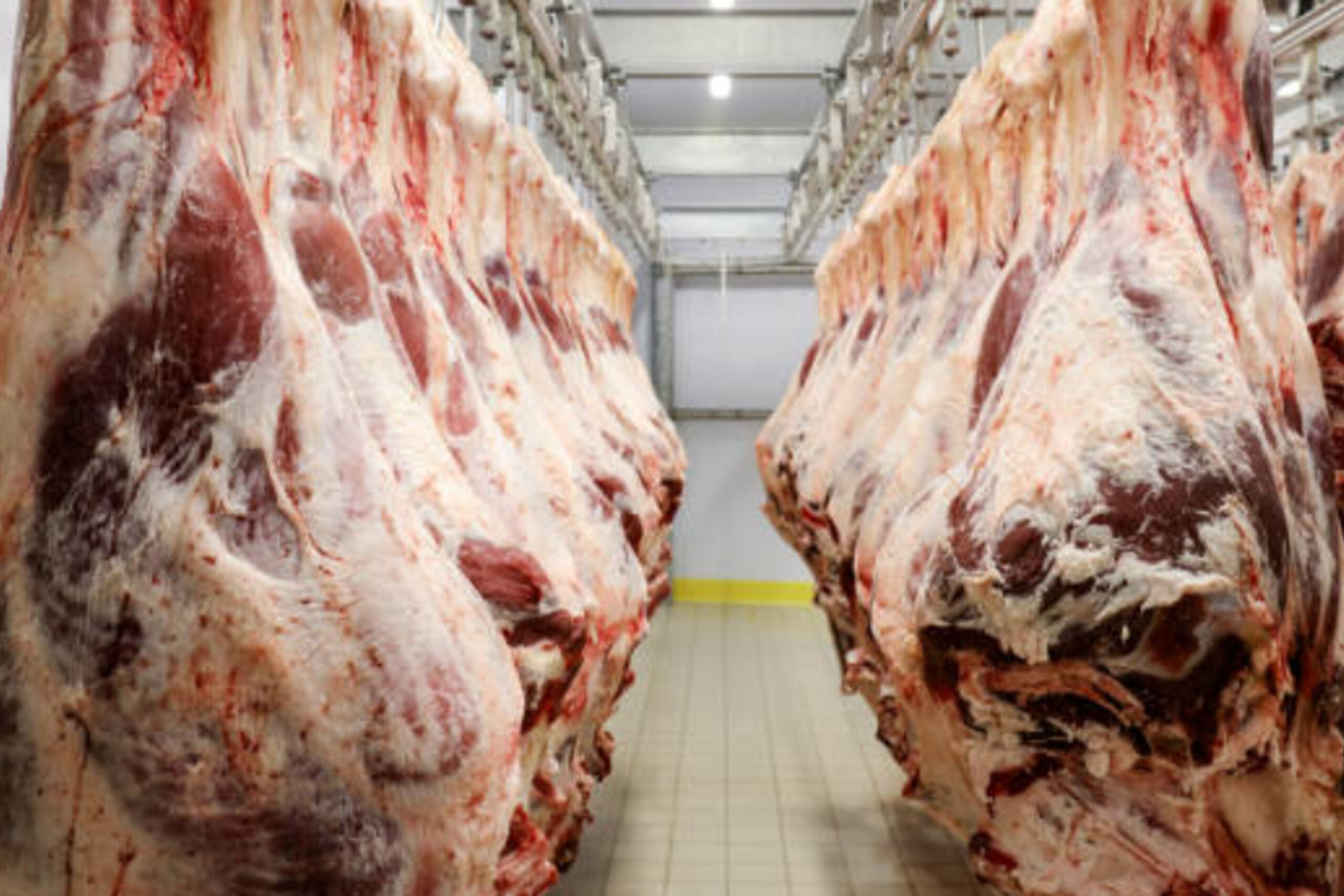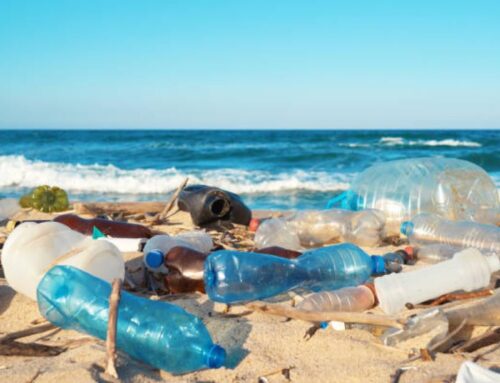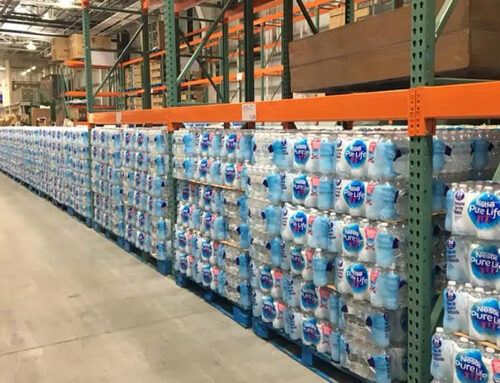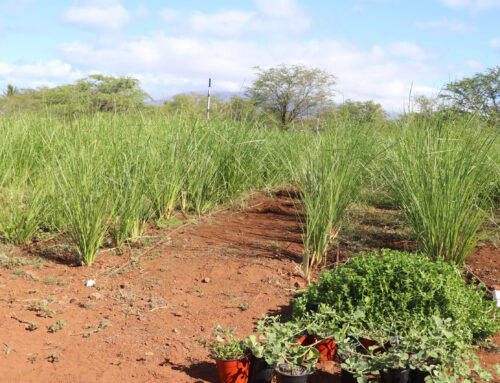According to a report by Greenpeace, meat – or more specifically, ‘industrial meat’ – is bad for the planet. But is there a way to cut down on meat consumption and still be eco-friendly? For those who still eat meat, or are trying to cut down, eliminating these proteins cold turkey can a daunting task. So, before we jump into why meat (including poultry) is harming the planet and ourselves, let’s be realistic about our consumption.
Can you eat meat and poultry and still be eco-friendly?
Ideally, we want to cut our consumption of animal products, including beef and poultry. But while paring down, improving shopping choices is a good start. Grass-fed, grass-finished, and pasture-raised meat and other animal products are generally considered more eco-friendly than meat raised in Concentrated Animal Feeding Operations (CAFOs and feedlots). There are also recent advances to help farmers organically reduce methane output from cow poop. Look for products that state they are grass-fed or pasture-raised on the label.
Another way is to buy meat from a small local farm, where you can learn about their process. Many have meat share programs to purchase products on a regular basis. For poultry, look for the words “Free Range,” or buy from a local farm where you know the birds are not keep in an indoor feedlot.
In addition to the climate aspects of industrial meat, these mass produced products often contain animals raised with antibiotics, growth hormones and other chemicals. However, if a packaging label says “100% Organic,” it means that the U.S. Department of Agriculture (USDA) has certified that the food contains no chemical fertilizers, pesticides, herbicides, hormones, drugs, or genetically modified organisms (GMOs).
To simplify the process, shop at an organic grocer, and read labels. Of the big chains, Whole Foods does a good job with their meat department quality standards and labeling, as well as sustainable seafood sourcing.
Why Industrial Meat is Bad
The vast majority of meat is produced in intensive factory farms. These farms are part of a destructive global system of mass-produced industrial meat and dairy.
This system is driven by big supermarkets as well as fast food chains like KFC, Burger King and McDonald’s. Many of these household names buy from companies owned by JBS – the largest meat processing company in the world. Through its meat production, JBS produces around half the carbon emissions of fossil fuel giants such as Shell or BP, and is driving deforestation in the Amazon.
The industrial meat system requires a huge amount of land to sustain itself. Forests, particularly in South America, are deliberately slashed and burned every year to graze cattle and grow enough crops to feed billions of farmed animals.
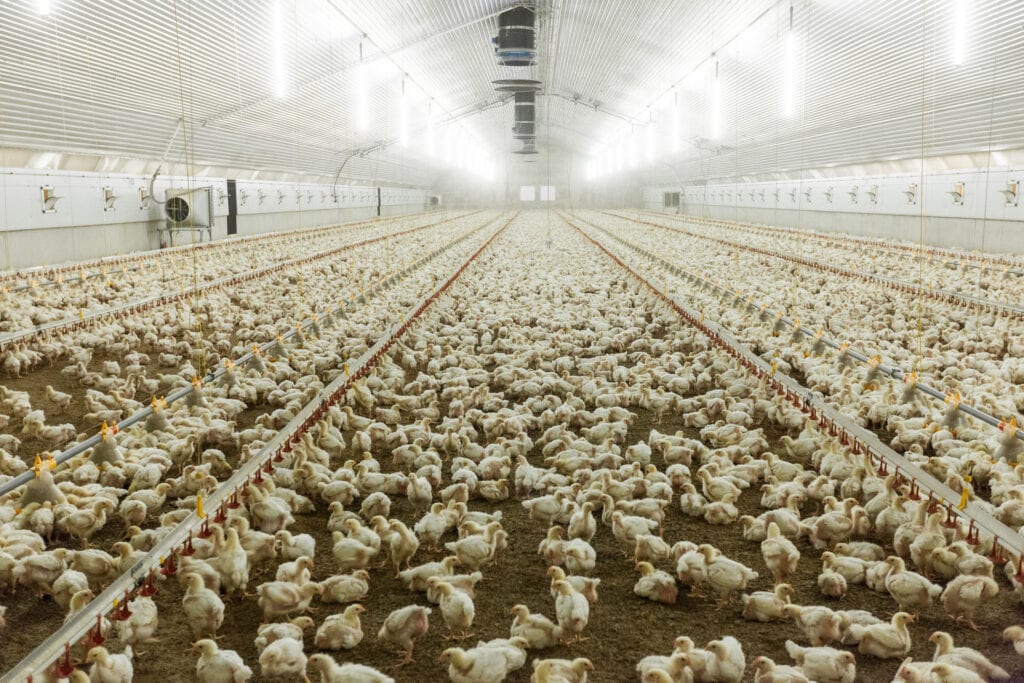
95% of UK chicken is produced in industrial farms like this one. Almost three million chickens are consumed in the UK every day. © Fred Dott / Greenpeace
Here’s why industrial meat is so bad for people and the planet:
1. It causes deforestation and forest fires
Industrial meat is the single biggest cause of deforestation globally. In Brazil, farmers are deliberately setting forest fires – like the Amazon rainforest fires you may have seen in the news – to clear space for cattle ranching and to grow industrial animal feed for other countries.
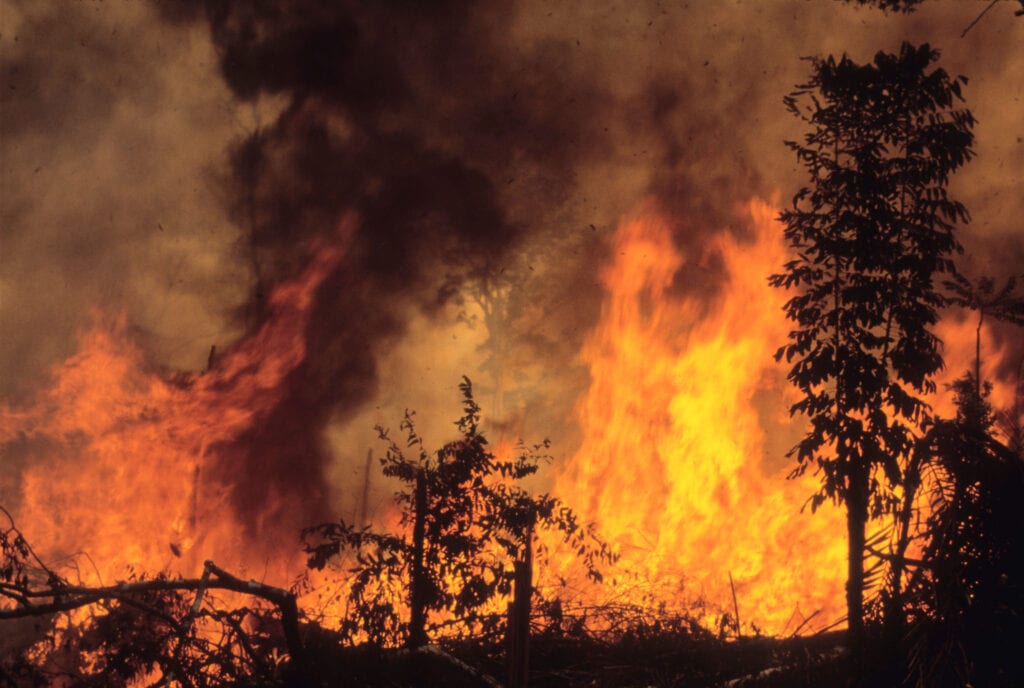
Forest fires are set deliberately to clear land for grazing or to grow huge volumes of animal feed. © Campbell Plowden / Greenpeace
2. It causes climate change
The climate impact of meat is enormous – roughly equivalent to all the driving and flying of every car, truck and plane in the world.
When forests are destroyed to produce industrial meat, billions of tonnes of carbon dioxide are released into the atmosphere, accelerating global warming. The fallen trees are often left to rot on the forest floor or are burned, creating further emissions.
Healthy trees are essential for absorbing carbon from the atmosphere. If we cut them down, they can no longer help us in the fight against climate change.
3. It’s pushing the Amazon rainforest closer to a tipping point
Trees in the Amazon rainforest produce their own rainfall, which keeps the whole forest alive and healthy. If deforestation (for things like industrial meat) continues at the current rate, the Amazon could reach a ‘tipping point’, where it can no longer sustain itself as a rainforest.
This would have a devastating impact on the people and animals who live in, or depend on, the forest directly. It could also lead to less rainfall, affecting drinking water and irrigation across large parts of South America; and changes to climate patterns in other parts of the world too.
4. It’s responsible for human rights abuses and land-grabbing
Indigenous People and traditional communities – like the geraizeira communities in Brazil – are at the frontline in the fight to protect forests. An investigation by Greenpeace Brazil showed that security forces working for soya producer Agronegócio Estrondo harassed, detained, abducted and shot members of the traditional geraizeira communities.
Meanwhile, President Bolsonaro and his government tacitly encourage illegal loggers, miners and farmers to occupy Indigenous lands, by rolling back historic regulations and trying to legalise land-grabbing. Land invasions often become violent and loggers have killed Indigenous People in these conflicts. Mass meat producer, JBS, has been repeatedly linked to suppliers who operate illegally on protected Indigenous lands.
Cattle ranches and soya producers in Brazil have a history of profiting from modern day slavery. That includes suppliers to JBS (the meat processing giant). JBS’ abattoirs have been linked to terrible working conditions, mass outbreaks of Covid-19 and salmonella-ridden chicken exports.

Small-scale organic farmer Dona Jô and her son João (pictured) – from the state of Acre, Brazil – lost everything but their house in the 2019 forest fires. © Denisa Šterbová / Greenpeace
5. It’s killing wildlife
By clearing forests, destroying habitats and using toxic pesticides to grow animal food, the industrial meat industry is contributing to the extinction of thousands of species, many of which haven’t even been discovered yet.
We depend on a healthy environment for our own survival. The huge abundance and variety of the natural world (sometimes called biodiversity) is essential for food, clean water and medicines. The rapid loss of biodiversity, largely driven by industrial farming, could be as big a threat to our existence as climate change.
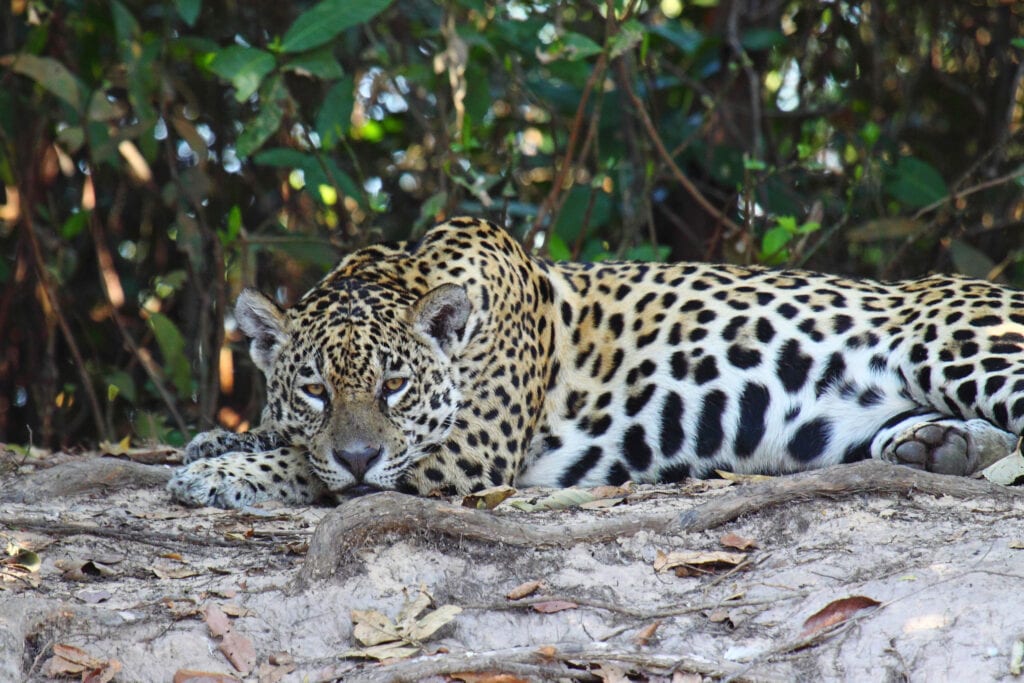
Jaguars are dying out, having lost nearly 38% of their habitat in Brazil. They’re classified as ‘near threatened’ by the International Union for Conservation of Nature. © Pablo Petracci
6. It’s increasing the risk of future pandemics like coronavirus
Destroying forests and other wild areas for animal agriculture is a major cause of new infectious diseases. Three quarters of new diseases affecting humans come from animals. Cutting down and burning forests brings wildlife into closer contact with people, enabling deadly viruses to pass from animals to humans. The more forest that is destroyed, the greater the risk of a new pandemic.
But that’s not the only disease risk from industrial meat. Factory farms can also increase the spread of disease, both between animals and from animals to humans. The risk is higher for industrial meat farms because huge numbers of animals are crammed into small spaces, and the animals themselves have weaker immune systems. This means that viruses can develop more rapidly and have the potential to pass to humans.
7. It’s an inefficient way to eat
Companies sometimes argue that industrial meat is an efficient way to produce food, but this ignores its true costs. Over a quarter of the world’s entire land area is used to graze or grow food for farm animals – food that could have been eaten by people in the first place. Just 1kg of chicken meat takes 3.2kg of crops to produce.
If everyone ate a plant-based diet, we’d need 75% less farmland than we use today. That’s an area equivalent to the US, China, Europe and Australia combined. That’s because it takes less land to grow food directly for humans, than to feed animals, which humans then eat.

